politics
Presidential Election : INEC said the petition by Obi and LP is grossly incompetent and abusive, and should be dismiss
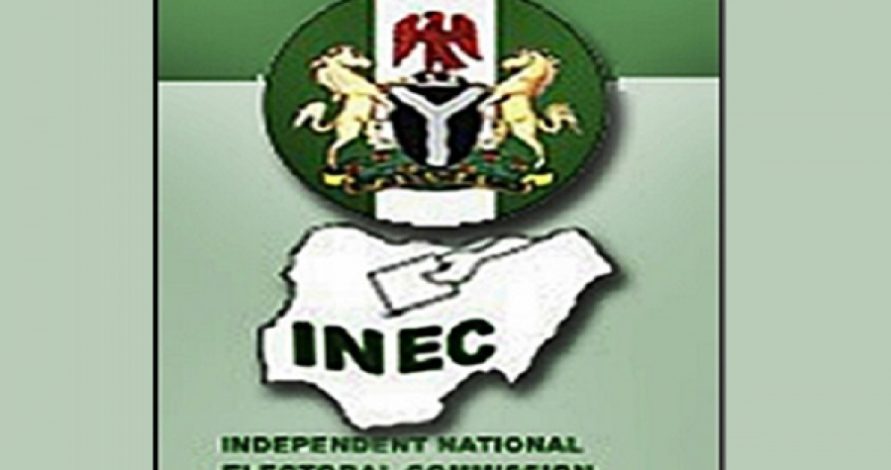
 …Obi and LP did not have agents in all the polling units
…Obi and LP did not have agents in all the polling units
,,,, Obi failure to plead specific particulars and figures as to how the alleged non-compliance by INEC
The Independent National Electoral Commission (INEC) has argued the reliefs being sought in the petition by the Labour Party (LP) and its presidential candidate, Peter Obi, cannot be granted by the Presidential Election Petition Court (PEPC).
INEC also contended the petition by Obi and LP is “grossly incompetent, abusive, vague, nebulous, generic, general, non-specific, ambiguous, equivocal, hypothetical and academic.”
The petitioners are seeking, among others, the nullification of the the outcome of victory of the February 25 presidential election.
They are of the view that Tinubu “was not duly elected by the majority of the lawful votes cast at the time of the election.”
Obi and the LP, who claimed that there was rigging in 11 States, alleged that INEC violated its own regulations when it announced the results when the totality of the polling unit results was yet to be fully scanned, uploaded and transmitted electronically as required by the Electoral Act.
Listed as respondents in the petition are INEC, Bola Tinubu, Kashim Shettima and the All Progressives Congress (APC).
But in its response, INEC argued that the grounds on which the petition was based were defective, having regard to the vague and imprecise averments supporting the said grounds.
INEC noted that, in relation to their claim of non-compliance with the provisions of the Electoral Act, 2022 and corrupt practices, the petitioners failed to disclose a reasonable cause of action by their failure to plead specific particulars and figures as to how the alleged non-compliance, which they claimed substantially affected the results of the election.
It argued that the petitioners’ ground, hinged on their claim that Tinubu was not elected by majority of lawful votes cast, is defective owing to their failure to plead the alleged unlawful votes to be deducted and/or lawful votes to be credited to the petitioners.
INEC argued that the petitioners’ prayer for the tribunal to declare that Obi scored majority of lawful votes cast at the election and be declared winner was equally defective in view of the petitioners’ “failure to join necessary parties and for lack of requisite particulars and pleading to support same.”
INEC contended that it was impossible for the tribunal to return as the winner of the election having not polled the majority of the lawful votes cast at the election and /or secured one quarter of the votes cast at the election in each of at least two-thirds of all states in the federation and the FCT.
It noted that the law required all political parties, intending to sponsor candidates in the election, to submit lists of their agents and were expected to observe the election process at their units, sign and collect result sheets on behalf of their political parties at the close of polls.
INEC added that some of the political party agents whose names were on the list submitted to it were however absent at their polling units while some others, who were present, neglected to participate in the election process.
The electoral umpire further stated that the petitioners (Obi and LP) did not have agents in all the polling units across country because they only submitted a list of 134, 874 polling agents, which is 41, 972 short of the 176, 846 polling units nationwide.
It added that the petitioners were not represented in many or some of the polling units across the country.
As against the petitioners’ contention, INEC insisted that Tinubu and Shettima were duly declared and returned elected and issued Certificates of Return, having fulfilled the requirements of the constitution to be declared winners and returned.
It added that the Shettma was duly nominated and sponsored to contest the election as the vice presidential candidate.
INEC prayed the court to dismiss the petition by Obi and LP.
politics
Update : C’River PDP Deputy Governorship Candidate,Emana Resigns From Party

 The Peoples Democratic Party (PDP) Deputy Governorship Candidate in 2023 general election, in Cross River State, Dr Emana Duke Ambroose-Amawhe, has resigned her membership from the party.
The Peoples Democratic Party (PDP) Deputy Governorship Candidate in 2023 general election, in Cross River State, Dr Emana Duke Ambroose-Amawhe, has resigned her membership from the party.
In a letter dated
march 28,2025, and addressed to the chairman of Edem Odo Ward, in Akpabuyo local government area of Cross River State, the former Deputy Governorship Candidate,explained that the resignation was with immediate effect.
She said her decision to leave the party was not made lightly, but she remains committed to serving her community and contributing to the progress of Cross River state and nation in other capacities.
In her words, “i am writing to formally resign my membership from the Peoples Democratic Party (PDP) with immediate effect.
” I sincerely appreciate the opportunity given to me over time to contribute my quota to the growth of the party and the chance to serve as the Deputy Governorship Candidate in the last general elections.
” It was a privilege to be part of the PDP’s vision and engage with our people in meaningful ways. However, after much reflection in light of the current state of affairs within the party, I believe it is time for me to move on.
“This decision was not made lightly, but I remain committed to serving my community and contributing to the progress of our state and nation in other capacities.
Continuing ” I appreciate the relationships and experiences gained during my time with the party and wish the PDP success in its future endeavours.
Amawhe, an embodiment of competence, capability and capacity,
was the Deputy Governorship Candidate to Senator Sandy Onor in Cross River State during the 2023 elections.
She was also an aspirant to the House of Representatives for the Bakassi/Akpabuyo/Calabar South Federal Constituency on the platform of the PDP.
politics
Breaking : Sule Lamido blasts El-Rufai over call to join SDP, Says how can a grandson claim his grandfather knows nothing’
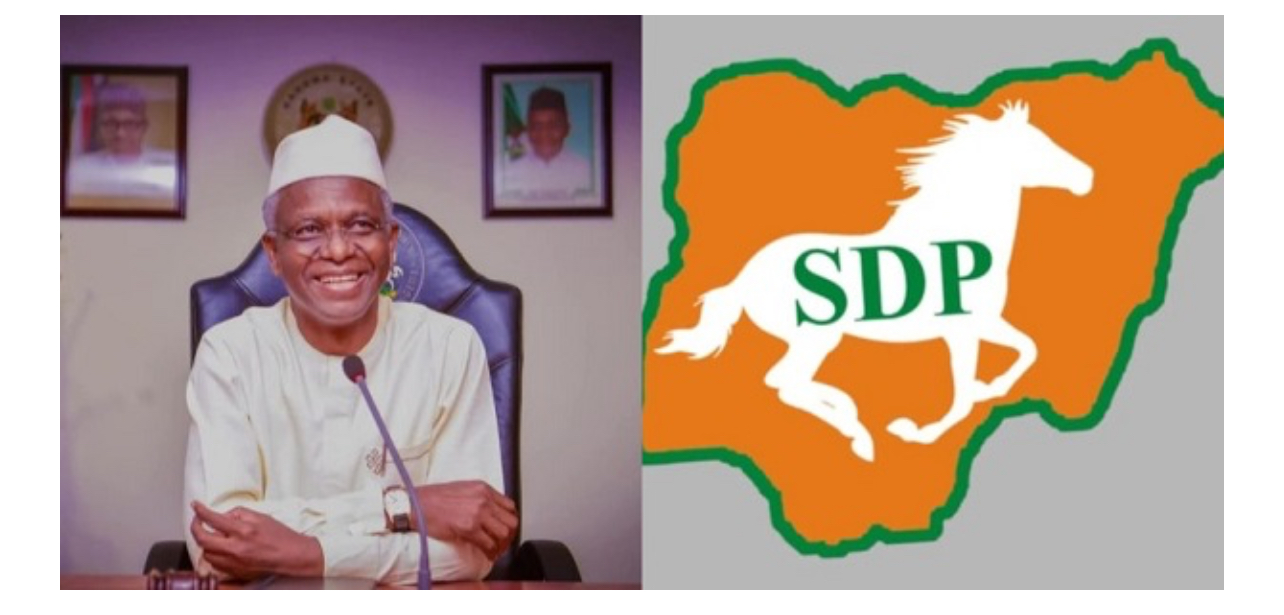
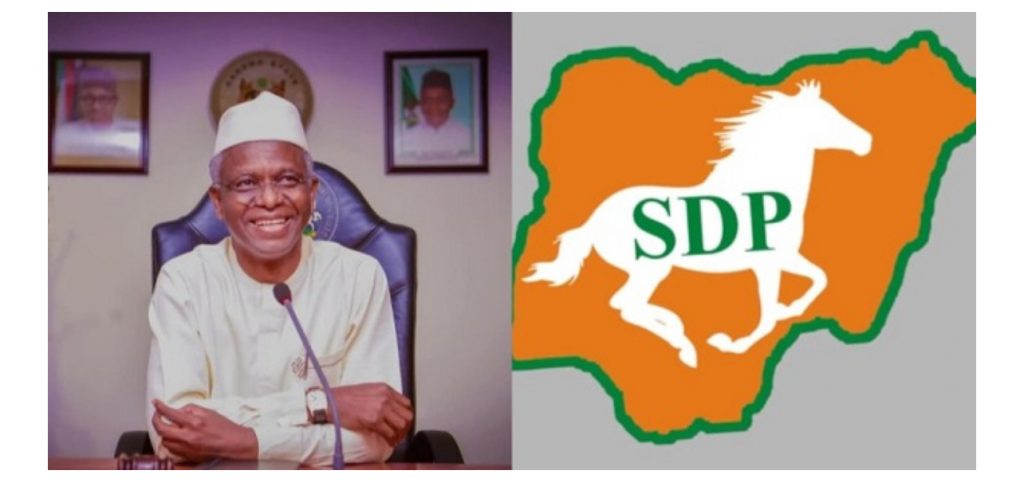 Former Governor of Jigawa State and chieftain of the Peoples Democratic Party (PDP), Alhaji Sule Lamido, has fired back at former Kaduna State Governor, Malam Nasir El-Rufai, over his call for opposition politicians to join the Social Democratic Party (SDP).
Former Governor of Jigawa State and chieftain of the Peoples Democratic Party (PDP), Alhaji Sule Lamido, has fired back at former Kaduna State Governor, Malam Nasir El-Rufai, over his call for opposition politicians to join the Social Democratic Party (SDP).
El-Rufai, who recently announced his defection from the All Progressives Congress (APC) to SDP, urged opposition leaders including Atiku Abubakar, Peter Obi, Rotimi Amaechi, and Rauf Aregbesola to join him in his new political movement.
However, Lamido in an interview with BBC dismissed El-Rufai’s invitation, questioning his political ideology and commitment to national development.
“With all due respect, how does he expect us in PDP to leave and join another party? The PDP that we built is the same party that made him who he is today. How can a grandson claim his grandfather knows nothing?” Lamido said.
He recalled that El-Rufai once declared there were no political elders in Nigeria, insisting that he and his allies were the true power brokers.
“But now he claims he advised Buhari. If he truly had the power he once boasted of, why did he have to seek Buhari’s counsel?” Lamido asked.
The former governor stressed that, despite PDP’s internal challenges, it remained his political home.
“If PDP is struggling today, it is still the party that nurtured El-Rufai. If he claims PDP is dead, then he must remember that it is the party that gave him his political foundation. Whatever he has achieved today, PDP made it possible.”
“If I didn’t join APC in 2014 when I was invited, and they left PDP out of anger, why are they now leaving APC? What has APC done to them?” he asked.
He maintained that governance should not be driven by emotions or personal grudges.
“Leadership is about patience, foresight, and working for the peace of the people and the nation. If you allow emotions to dictate your decisions, you will never lead objectively.”
He stressed that if the goal is to unseat President Bola Tinubu, it should not be based on personal grievances but on national interest.
“We should not fight Tinubu just because we are angry at him or seeking revenge. Leadership should be about prioritizing the country’s well-being rather than personal emotions.”
Lamido concluded by urging politicians to focus on strengthening the country rather than making decisions based on resentment.
politics
Breaking : Rivers State House of Assembly Gives Governor Fubara, 48 hours to present 2025 Budget
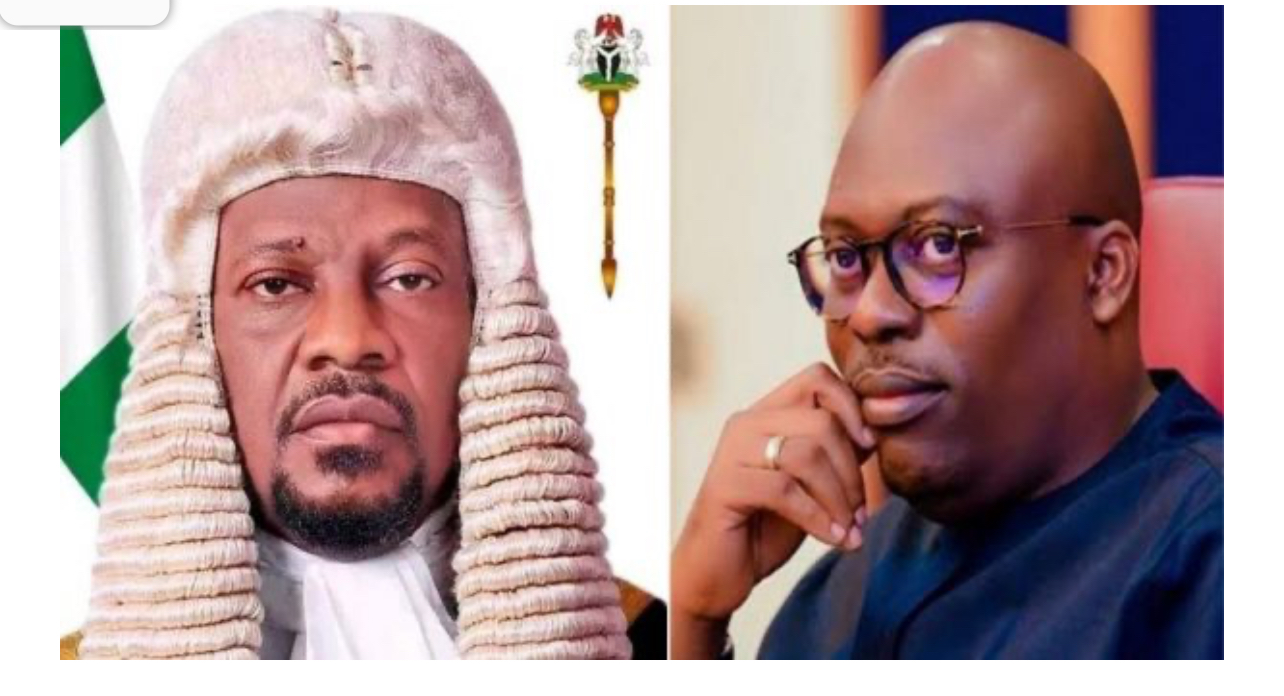
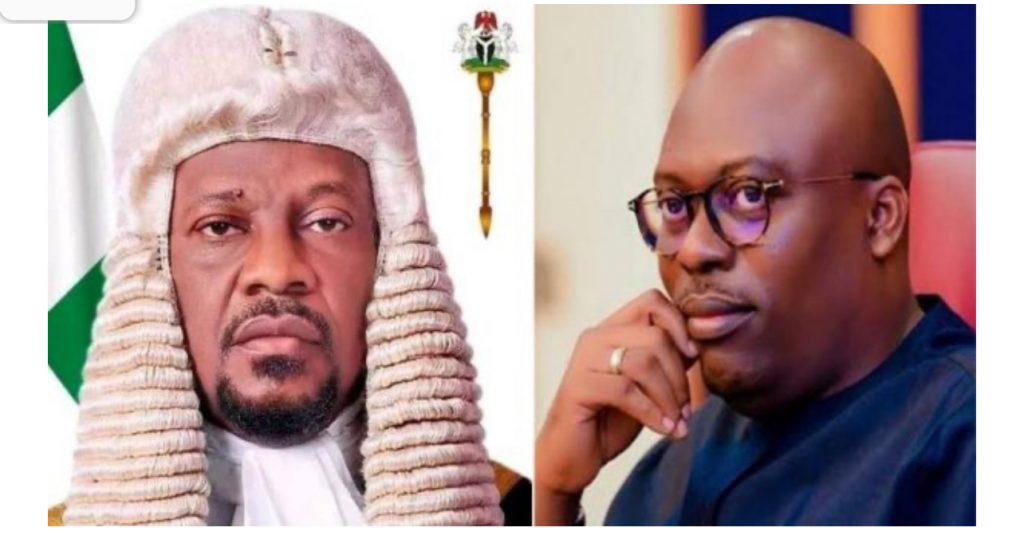 ….I’ll obey Supreme Court judgment, says Fubara
….I’ll obey Supreme Court judgment, says Fubara
Forty-eight hours after the Supreme Court handed down two judgments that threaten the soul of the Siminalayi Fubara Rivers State government, the governor yesterday announced his intention to fully obey the orders.
In a twist, described by observers of the Rivers State politics as unexpected, Fubara told Rivers residents that he expected to get the Certified True Copy (CTC) of the judgment by Friday to enable him to take the necessary action.
He ordered the 23 local government chairmen, whose election was voided by the judgment, to quit today after handing over to heads of personnel.
The apex court on Friday gave two judgments – one by Justice Akomaye Agim, which recognises the Martins Amaewhule-led 26 members of the state House of Assembly, and the second by Justice Jamilu Tukur, which declared as invalid the election conducted on October 5, 2024, that led to the emergence of 23 chairmen and 319 councillors.
The apex court further invalidated the state budget and ordered the Central Bank and the Accountant-General of the Federation to stop releasing funds to the state government pending when Fubara would re-present the budget to the authentic House of Assembly led by Speaker Amaewhule.
In a broadcast yesterday, Governor Fubara said: “I have had a meeting with my team of lawyers and they have assured me that the certified true copy of the judgments may be available to them by Friday 7th March 2025.
“I assure you that upon the receipt of certified judgments, we shall study their ramifications and implement them without reservations to move the state forward.
“Furthermore, given the outlawing of caretaker arrangements in the local government system, I hereby direct the heads of personnel management to immediately take over the administration of the 23 local government councils pending the conduct of fresh elections by the Rivers State Independent Electoral Commission.
“I further direct the outgoing local government chairmen to formally hand over the levers of power to the heads of personnel management by Monday, 3rd March 2025.”
Fubara said since its inception, his administration conducted the affairs of government within the framework of the constitution, due process and the rule of law.
The governor noted with regret the trying times the state had been plunged but urged everyone to remain calm and peacefully go about their legitimate daily activities and be sure that his administration would continue to do everything in meeting their aspirations.
Fubara said: “We are all aware of the recent Supreme Court judgments and pronouncements regarding aspects of the lingering political disputes in our dear state.
“Although we disagree with the judgments, we are bound to obey the orders made therein as a law-abiding government.
“Since inception, we have conducted the affairs of government within the framework of our Constitution, due process and the rule of law.
“While we are not above mistakes because we are humans, we believe that we have not, as a government, done anything deliberately to trample on the rule of law or the hallowed principles of constitutional governance.”
Fubara, Amaewhule should work together, say elders
The Rivers State Elders Council (RSEC) called on Fubara and Speaker Amaewhule, to prioritise the interest of the state and work together in line with the Supreme Court judgment.
Referring to Fubara and the lawmakers as one political family, the elders in a statement signed by its Chairman, Chief Ferdinand Alabraba, said there was no more case standing between the both parties.
The elders congratulated the people of Rivers State on what they described as the well-rounded pronouncements of the Supreme Court oon the political crises.
The statement said: “The Elders Council further commends the people of the state for their resilience, patience and peaceful disposition throughout the period of the crises in the state while awaiting the final verdict of the apex court of the land on all the matters.
“Now that the Supreme Court has spoken unequivocally on all the matters, we believe strongly that nothing now stands in the way of His Excellency, Sir Siminalayi Fubara, Governor of Rivers State and Rt Hon Martin Amaewhule, Speaker of the Rivers State House of Assembly, working together in the best interest of the state and her people.
“We are, therefore, calling on the Governor of Rivers State and the Speaker of the Rivers State House of Assembly, who both emerged from the same political family in the state, to put Rivers State above all other considerations, personal or otherwise, and ensure urgently that all necessary steps are taken in conformity with their constitutional responsibilities.
“We give God Almighty all the glory for granting Rivers State this unique opening for peace to return to our dear state.”
-

 news5 years ago
news5 years agoUPDATE: #ENDSARS: CCTV footage of Lekki shootings intact – Says Sanwo – Olu
-

 news1 year ago
news1 year agoEnvironmental Pollutions : OGONI COMMUNITY CRIES OUT, THREATENS TO SHUT DOWN FIRSTBANK,SHELL OIL COMPANY OPERATIONS FOR NOT PAYING COURT AWARD
-
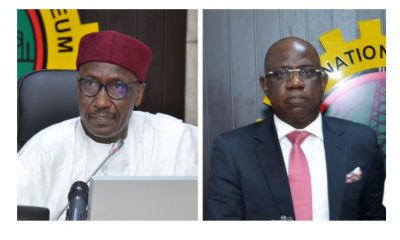
 news3 weeks ago
news3 weeks agoBreaking : TInubu appoints Bashir Ojulari as new CEO group of NNPC and GMD mele kyari get sacked, Says Onanuga
-
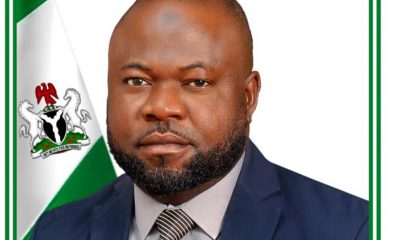
 interview3 weeks ago
interview3 weeks agoNIGERIA MECHANIZED AGRO EXTENSION SERVICE PROJECT, A STRATEGIC MOVE TO ALLEVIATE POVERTY – DR. AMINU ABDULKADIR
-
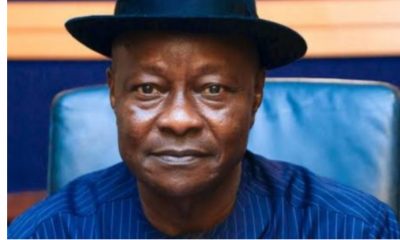
 news3 weeks ago
news3 weeks agoUpdate : Fubara ordered bombing of Rivers Assembly, I am not under duress I resigned, Says ex-Rivers HoS Nwaeke
-
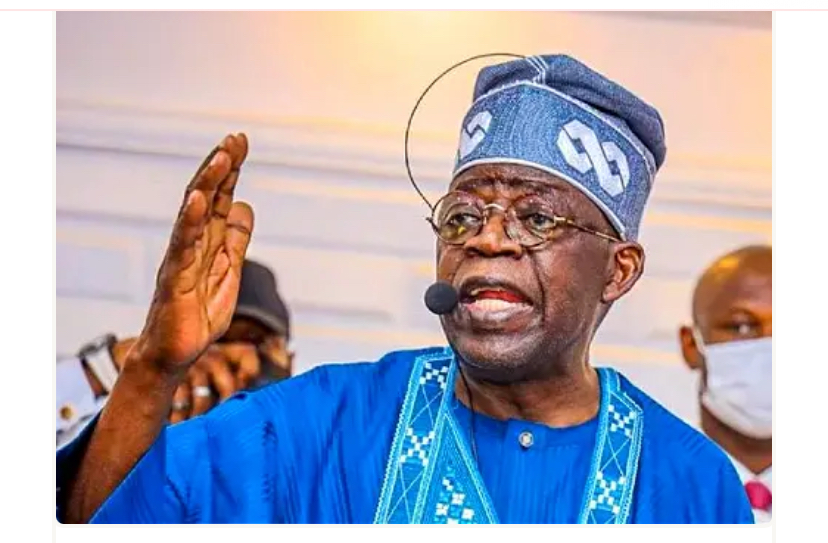
 news1 week ago
news1 week agoNothing new in FBI report on Tinubu, says Onanuga
-
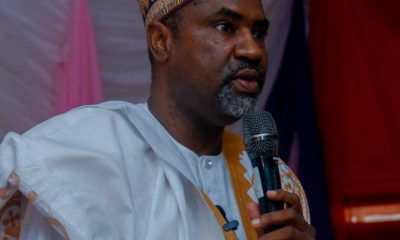
 news6 days ago
news6 days agoAirlin Advocacy Commissions Jos Office, Targets 7m Members By Next Elections,Says Mohammed Gamawa
-

 news3 weeks ago
news3 weeks agoTinubu commended Nandap for her leadership, extends Comptroller-General tenure till 2026, says Onanuga


